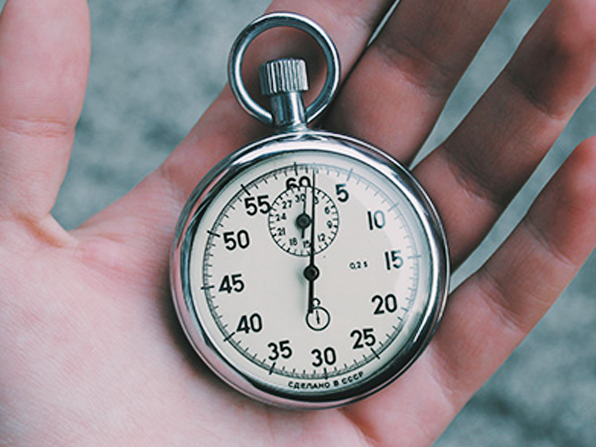
Regular exercise and a healthy diet are very important for body weight management. But hormones play a key role in shrinking fat cells.
I've been studying these 6 fat burning hormones for many years. This article will help you understand how to activate them and effectively reduce body fat. Here is what we'll talk about:
» Growth Hormone
» Insulin IGF
» Glucagon
» Thyroid Hormones
» Adrenaline
» Testosterone
At the end, I'll also cover the hormones that control appetite.
How the Fat Burning Hormones Work?
Fat burning hormones impact our metabolic rate, how our bodies store fat, and how we build muscle. Knowing how these complex chemical messengers work makes it easier to fight body fat. Let's get into it.
Growth Hormone – Not Just a Muscle Builder
The pituitary gland in your brain produces growth hormone (GH). It travels to the liver and helps your body regulate fluids and fat metabolism between meals and while you sleep.
GH rebuilds tissues as they break down over time (anti-aging hormone). It also supports cartilage and collagen development, making it even more important for body repair.
Some bodybuilders I know use it to increase bone density and muscle mass. What many aren't aware of is that, at the same time, this hormone reduces body fat.
Insulin-like Growth Factor – The GH Supporter
IGF is a hormone produced in the liver in response to GH. The two hormones work in tandem, promoting bone and muscle growth. More muscle means your body burns more calories, but that's not all.
Some sources suggest the Insulin-like Growth Factor promotes fat loss indirectly. Based on what I've read and experienced, it often does it directly. Let me explain.
If your blood sugar level is high, glucose can be stored as fat in your liver. IGF increases insulin sensitivity. Better insulin sensitivity means your body is more efficient at using glucose for energy.
In other words, this hormone gives your body fuel through stored fat. As mentioned in my article on How Fat Burning Works…Your body starts to burn fat to meet its energy needs!
Glucagon – The Blood Sugar Regulator
Glucagon is a hormone produced by the alpha cells in your pancreas. When blood sugar levels drop, glucagon is released to signal the liver to convert stored glycogen into glucose.
By regulating the levels, the hormone maintains a good energy balance.
The reason glucagon is on my list of fat burning hormones is its impact on lipid metabolism. Simply put…It breaks down fat stores and forces your body to use them as energy instead of relying only on carbs.
Thyroid Hormones – Your Metabolism Friends
Triiodothyronine (T3) and Thyroxine (T4) are produced by the thyroid gland located in your neck. As you figured, these hormones regulate your metabolism.
They influence nearly every cell in your body, affecting how quickly you burn calories.
T3 is the more active form of thyroid hormone. Higher levels of T3 increase the rate at which your body burns fat, making it easier to lose weight.
Sometimes, I joke with friends: The thyroid hormones tell the scale what numbers to show!
Adrenaline – The Quick Fat Burner
Adrenaline, or epinephrine, is produced in response to stress or danger. But beyond its role in emergencies, adrenaline is also a powerful fat-burning hormone.
It increases heart rate, blood flow, and energy production. It also encourages your body to burn calories more efficiently, even after the initial rush has passed.
One of my friends runs a skydiving center…He doesn't care what he eats and has no body fat.
I'm giving you that example to emphasize the effects of adrenaline. The more often you're in “Fight or Flight Mode,” the more fat your body releases from fat cells.
Testosterone – Not For Men Only
That's right! Testosterone is a hormone primarily known for its role in male development. However, it is important for everyone's health, regardless of gender.
Low testosterone can lead to excessive weight gain, decreased sex desire, lack of motivation, depression, etc., even in women…But let's get back to the point.
As you probably know, the main benefit of this hormone is its ability to promote muscle mass. As testosterone levels go up, the protein synthesis also increases. This process helps you build and repair muscle tissue.
But how does it relate to fat loss, you may ask?
It's quite simple. More muscle means a higher resting metabolic rate. This allows your body to burn more calories even when not working out.
Now that you have a better understanding of fat burning hormones, let's talk about activating them.

How to Trigger Hormones That Burn Fat?
Incorporating specific foods and activities into your routine will help you trigger fat-burning hormones. Lifestyle changes and supplements containing certain ingredients can also impact this process. Let me give you some examples.
Dietary Choices
A balanced, protein-rich diet stimulates growth hormone and testosterone. I try to eat more lean meats, eggs, legumes, and dairy products to this end.
Bodybuilders also increase their protein intake before the season starts. At that time of the year, they are in a cutting phase, aiming to lose fat but maintain muscle mass.
Meat, tuna fish, and healthy fats found in avocados or nuts have a good effect on regulating the glucagon hormone.
Physical Activities
A good diet combined with regular exercise is one of the most effective ways to boost fat-burning hormones. For me, weightlifting is best for keeping testosterone levels in check.
Extreme sports boost adrenaline. Practicing such sports can help you reach your weight loss goals without being obsessed with counting calories and going on restrictive diets.
Not getting enough sleep leads to insulin resistance, so try to get your 8 hours. It will also help with the growth hormone, which is also released during deep sleep.
Supplements
Supplements containing the below components can also support the natural production of fat-burning hormones.
Omega-3 fatty acids can improve insulin sensitivity, which helps regulate glucagon levels. Vitamin D is important for maintaining healthy testosterone levels. Zinc helps your body produce thyroid hormones.
Extracts from juniper berries and white willow bark maintain energy levels and can help regulate testosterone. These extracts and other natural ingredients are used to produce high-quality fat burners like SKALD.
What Hormones Control Appetite?
At the core of our body is a delicate orchestra of hormones that tell us when we’re hungry and when we’re full. For the sake of this article, I'll cover the two that contribute the most to a healthy balance.
Leptin
Produced by fat cells, leptin helps to regulate energy balance by inhibiting hunger. Higher leptin levels signal the brain to reduce appetite and increase energy expenditure, promoting fat loss.
However, leptin resistance can occur, making it less effective in signaling satiety. This condition is common in people with obesity. They may have high levels of leptin but think that they're hungry.
Regular exercise can maintain healthy levels of this hormone. If you need to lower it, fasting has been proven effective.
Ghrelin
You may have heard the term “hunger hormone.” That refers to ghrelin, which is produced in your stomach and stimulates appetite. Thus, it's the opposite of Leptin.
People on weight loss diets often face a challenge related to increased levels of ghrelin. When this occurs, they feel hungry throughout the day, which sabotages their efforts.
Eating good carbs and lean proteins is important for regulating this hormone. Experts suggest staying hydrated, getting enough sleep, and avoiding overly processed foods.
There is no evidence suggesting that supplements can directly control the levels of these hormones. Plus, as I mentioned in my Weight & Fat Loss Myths article…you shouldn't believe in promises that supplements will do all the work.
On the other hand, Catechins and N-acetyl L-tyrosine are proven to reduce appetite and increase dopamine, which can help avoid emotional eating.
That's why they are used in highly effective and unharmful fat burners like SKALD.




